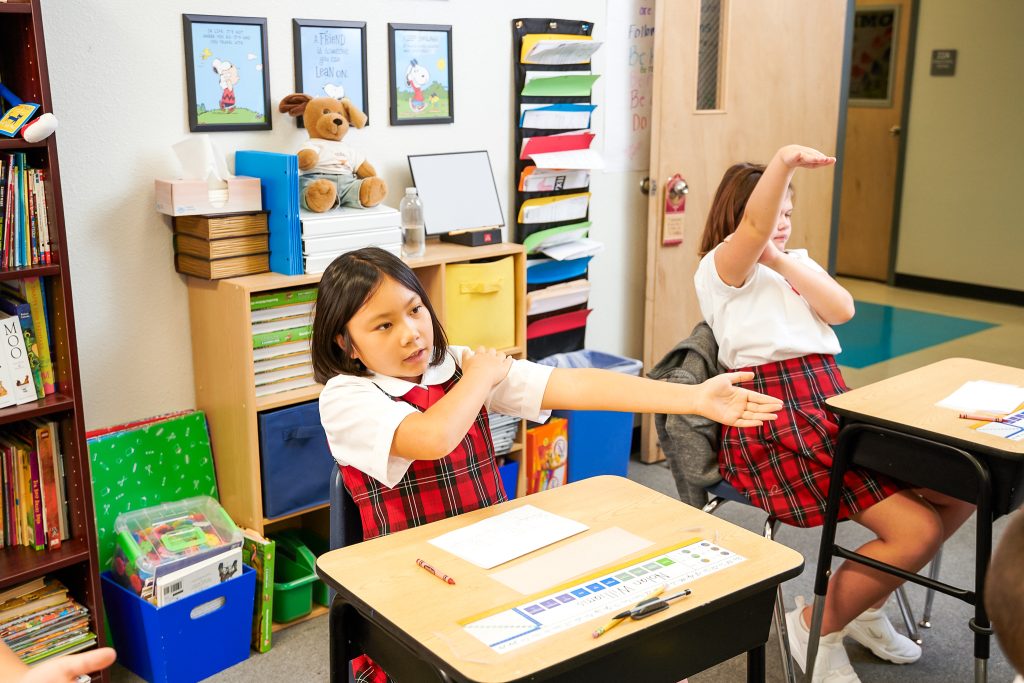Supporting All Learning Styles
Has your child has been diagnosed with a learning difference? While that diagnosis may seem overwhelming at first, there are two things to keep in mind as you start to figure out how best to support your child: one, a diagnosis of a learning difference (or differences) simply means that your child’s brain processes information differently; and two, Hill School of Fort Worth is available to help.

Photo courtesy of Hill School
October is National Learning Difference Awareness month! As such, we sat down with staff members from Hill School to understand the learning differences they address in their students and how they support these learning styles.
Since 1973, Hill School has been helping students with learning differences become lifelong learners. When asked how Hill School works with the myriad of learning differences, Callie Williams, Hill School’s Engagement and Communications Specialist, said, “First and foremost, we equip our students with the materials, technology, and guidance to develop independent learning skills. Learning those skills allows each student to understand their difference and advocate for themselves, which ultimately sets them up for the most success in the classroom and beyond.”
There are many kinds of learning differences. Here are just some of the learning differences that Hill School supports.
Dyslexia and other reading impairments
For students who have been diagnosed with a reading impairment, Hill School implements the Orton Gillingham method, which is a multi-sensory approach to teaching reading, writing, and spelling.To support reading development, Lower School students receive OG instruction daily, while middle and upper school students get a double block of English classes, as well as the option of read-aloud exams and assignments.
Dysgraphia
Students with dysgraphia struggle with handwriting and coherence. Teachers often utilize graphic organizers as a strategy to help students break down writing assignments into manageable pieces, or take advantage of school-provided technology such as talk-to-text programs. Hill School puts special emphasis on teaching handwriting and cursive through middle school. Students with dysgraphia are also encouraged to take notes usingtheir stylus,tablet or other multi-sensory tools in class to practice..
Dyscalculia and other math impairments
Dyscalculia is a learning difference that makes learning and understanding arithmetic and mathematics difficult. For students with a math impairment, Hill School offers hands-on learning with a variety of manipulatives that help the student visualize the problems.

Photo courtesy of Hill School
ADHD
ADHD is one of the most common diagnosis we see in students, often a secondary diagnosis in conjunction with other learning impairments. Hill School students with ADHD are given opportunities to burn off energy and “reset” throughout the day. This means that Lower and Intermediate students have not one, but two recesses during the day. Classrooms are equipped with bounce ball chairs, standing desks, bounce bands on desks, and fidgets to help with active listening. Students are also given “brain breaks,” which allow them to take a breather and refocus.
Anxiety
More and more children are diagnosed with anxiety disorders every year. Hill School feels that learning social and emotional skills are just as important as learning to read and write, so their counselor leads social skills lessons each week, focusing on topics like stress management, coping skills, and improving executive functioning.The faculty and staff have undergone Social ThinkingTMtraining, and incorporate pieces of this framework in their classrooms for students to learn and apply pro-social behavior.
Executive Functioning Disorders
Students with executive functioning disorders struggle with organization, problemsolving, and planning. These students are taught social skills, including conflict resolution and collaborations, while learning how to utilize daily planners. Students take advantage of advisory time to layout upcoming work and projects and apply time management skills.
Speech and Language Disorders
Speech and language disorders cover a wide range of learning differences, and Hill School is ready to help your child. Hill School currently partners with TCU’s Speech Pathologist graduate students who work in small groups to develop pragmatic language skills, while classroom time offers opportunities to practice and hone those skills.
High Functioning Autism Spectrum Disorder
For students with high functioning autism spectrum disorder, social situations like school can be overwhelming. Hill School understands this and offers creative and social opportunities for students to express themselves, find peer support and camaraderie.Hill School’s commitment to social and emotional learning through the Social ThinkingTM framework also largely benefits students with ASD.

Photo courtesy of Hill School
If your child has been diagnosed with a learning difference, don’t despair. Go to Hill School’s website (hillschool.org) or call 817-923-9482 to see how the Hill School difference can benefit your different learner.


 Sign in
Sign in

